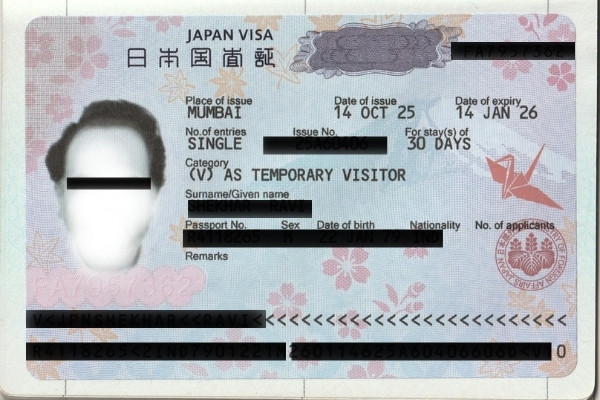Why Choose Fly For Holidays?
Japan has become increasingly attractive to tourists, the most visited country in the world today. Because it has several tourist destinations, such as Mount Fuji, the country is highly targeted by travelers. Besides having many beautiful places to visit, the Japanese economy has evolved a lot in recent years, which has made the country very interesting for visitors. However, to get to know this country full of mysteries, a Japan tourist visa is required.
However, before embarking on this exciting journey, it is essential to understand the visa requirements and application process. This article serves as a detailed guide to obtaining a Japan visa for Indian citizens.
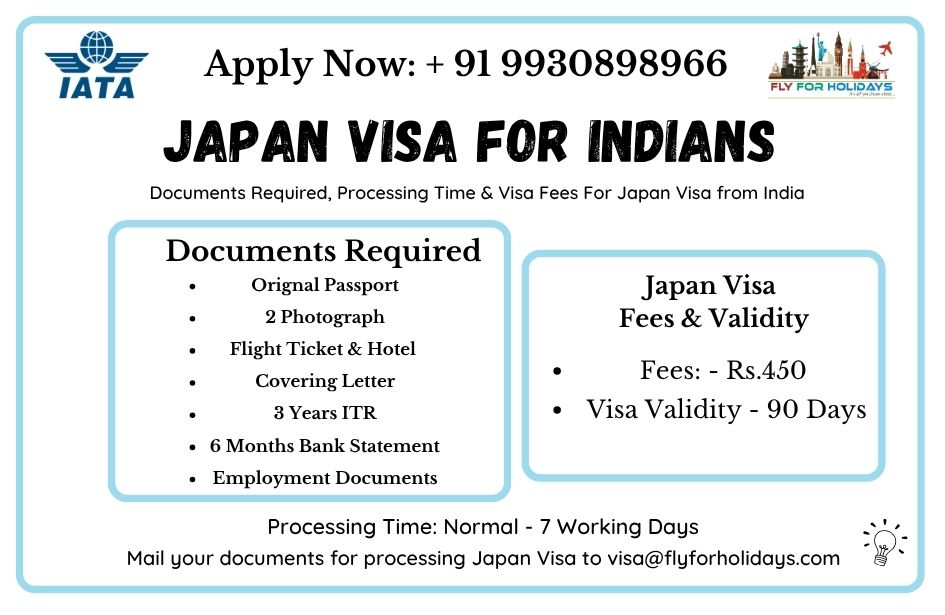
The visa fees for Japan has revised effective April 2024, the charges of the Embassy would be INR 450/- Including all charges.
Japan Tourist Visa | |
|---|---|
| Visa Validity | 90 Days |
| Stay Period | 15 Days |
| Processing Time | 7-8 Working Days |
| Entry | Single or Multiple |
| Service Charge | INR 2,360/- |
| Total Visa Fees | INR 2,810/- |
Japan Business Visa | |
|---|---|
| Visa Validity | 90 Days |
| Stay Period | 15 Days |
| Processing Time | 7-8 Working Days |
| Entry | Single or Multiple |
| Service Charge | INR 2,360/- |
| Total Visa Fees | INR 2,810/- |
Japan offers various visa categories tailored to different purposes of travel. It is crucial to identify the correct visa type based on your travel intentions.
The Japan Tourist Visa, also known as the Temporary Visitor Visa, is granted for individuals traveling to Japan for leisure, sightseeing, or visiting family and friends.
Duration: The Japan Tourist Visa is typically valid up to 90 days.
Eligibility: Japan tourist visa is suitable for tourists, family visits, and short-term cultural exchanges.
The Japan Business Visa is intended for individuals traveling to Japan for business-related activities, including meetings, conferences, and negotiations.
Duration: Generally valid for up to 90 days.
Eligibility: Suitable for business professionals, entrepreneurs, and corporate representatives.
For self-employed individuals: Proof of ownership (e.g., GST Certificate)
Here is a checklist for a Japan visa application:
Additional documents for a Japan Business Visa:
Invitation letter from the Japanese company on company letterhead

Get Real time support for all your queries. We are available 24*7 during tour
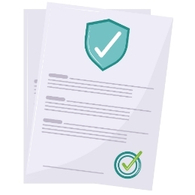
We keep ourself up to date with latest updated and policies laid by the Visa Offices

Our service fees are the most competitive in the market

Keeping in mind about your budget, we guarantee 100% Satisfaction
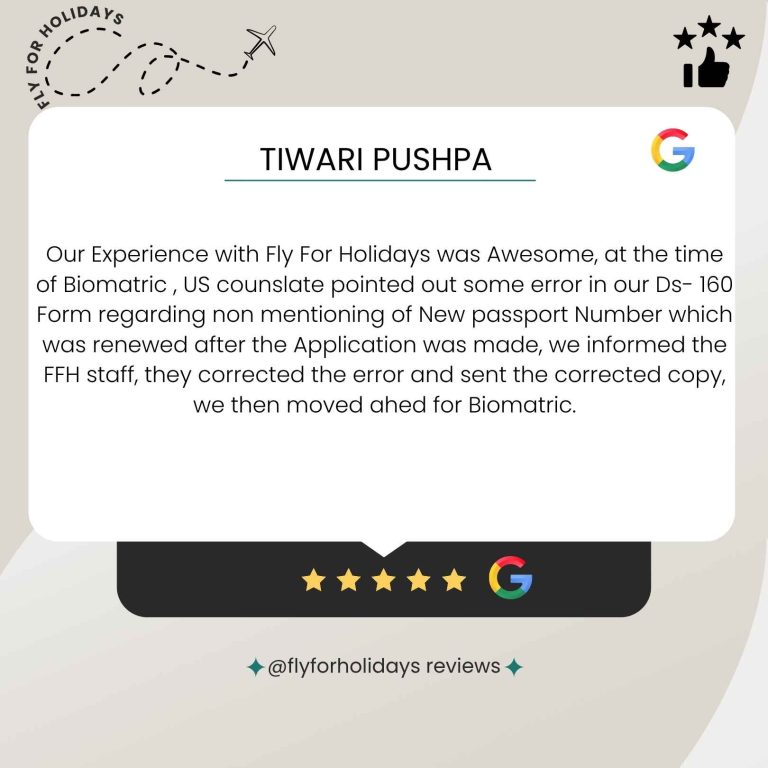
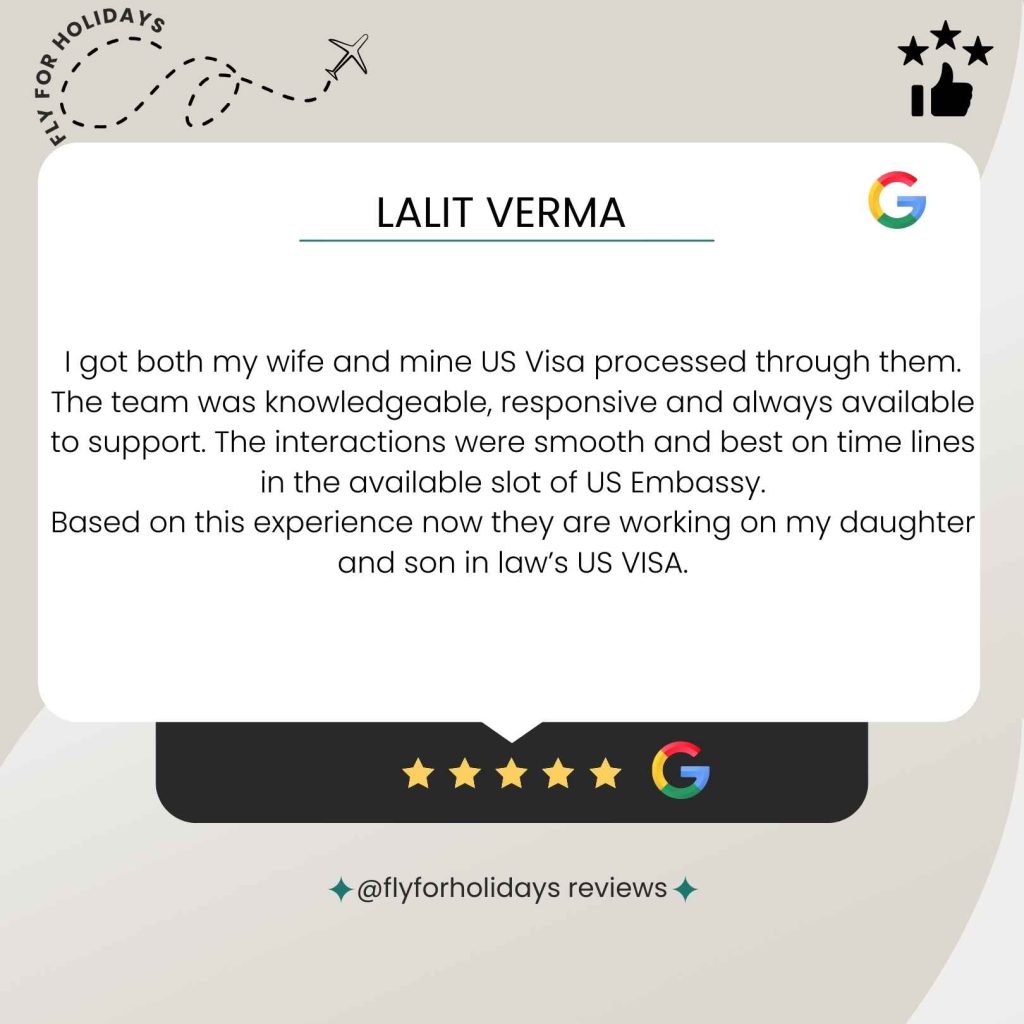
How to Apply Japan Visa from India in 2026?
The process of applying for a Japan visa from India has seen some significant updates in 2025. With the introduction of the Japan eVISA system, applicants can now enjoy a more streamlined and efficient application process. Here’s a full guide on how to apply for a Japan visa from India in 2025:
Must-visit places in Japan
Mount Fuji Highest mountain and active volcano are worshipped as a sacred mountain are a must-visit for the people visiting Japan. One of the most adventurous trips you can have in Japan. Japanese people consider this as Three Holy Mountains along with Mount Tate & Mount Haku. You can go skiing here.
The best time to visit is in July & August and the nearby airport is Shizuoka Airport 83.5 km away from Mt. Fuji and from there take a cab or bus to reach here.
Tokyo Disneyland most fun-loving place to bring out the child in you. Tokyo Disneyland & Tokyo Disney Sea are two theme parks in Disney Resort. You can assign two days here if you want to explore both the theme parks without any hassles. Park has seven themed areas including Adventureland, Westernland, Fantasyland, Tomorrowland, World Bazaar, and mini land of Critter Country & Mickey’s Toontown. It is just 30 minutes from Central Tokyo.
Cherry Blossom Festival is known as Hanami Festival. This festival is dedicated to the two weeks of the spring season in March & April when sakura & ume flowers bloom everywhere in Japan. Though on the island of Okinawa it blossoms in January whereas Hokkaido island sees the cherry blossoming till late May. People visit the gardens to enjoy the sight of lovely pink flowers. Plan a trip to Japan during the Cherry Blossom Festival as this amazing sight is nowhere to be seen.
Yakushima a subtropical island off the south coast of Kyushu is covered by extensive cedar forests having some of the oldest trees of Japan. It rains throughout the year here. Snorkeling, Hiking, Scuba diving, waterfalls, and museums are the activities carried out here. The place to visit here is The Shiratani Unsukiyo Ravine a lush green nature park for the people who don’t want much hiking.
Jomonsugi is the main attraction here with the giant cedar tree standing tall from 2000 to 7200 years old according to the scientists. Another famous tree pairing which resembles here of husband and wife embracing is Meotsugi. Daiosugi is the largest tree here. Yakusugi land is a nature park here with 1000+ years old cedar trees.
